This article is a companion piece to this video
When possession but not ownership of property is transferred from one party to another and later returns damaged, what is the recourse? Rathbone Group subrogation lawyer Jason Sullivan discusses the three types of bailment, how they apply to insurance lawsuits, and how the nature of a bailment relationship determines what types of liability exist.
Property Subrogation: Bailment, Beneficiaries & Standards of Care
You should always return borrowed things in the condition you were given them – it’s not just something your grandmother always used to say; it’s the law! Bailment is a legal framework where when property owned by an individual, referred to as the bailor, is taken and given to another individual, referred to as the bailee, but ownership is not transferred. In bailment, there is an expectation that said property should be returned in the same condition in which it was given.
Subrogation lawyers most often encounter bailment in cases where an individual’s car was damaged at an auto body repair shop in the course of service. The question with bailment is: if the property was damaged while the bailee was in possession of the bailor’s property, are they liable?
The 3 Types of Bailment in Subrogation Claims
Liability exposure and its extent are determined by what type of bailment relationship exists. These are defined by which party(ies) benefit from the relationship:
1. Benefit of the bailor only
When the relationship benefits only the property owner, liability is limited to extreme conduct of recklessness. Consider a coat check at a restaurant: it is a convenient service you do not pay for. As the owner of the coat, you as the bailor are the only party that benefits from the exchange. If they lose your coat or return it with a snag, that would not meet the standards of extreme negligence.
2. Benefit of the bailee only
When the relationship benefits only the borrower/secondary party, liability exists for even slight negligence. Consider borrowing a book from the library: you are taking property without providing a payment in return. The relationship benefits only you as the bailee, so you have a much higher standard of care. If you damage pages by earmarking them, you can be held liable even though it’s a very low level of negligence.
3. Mutual benefit bailment
This is by far the most common type of bailment subrogation attorneys and claims adjusters encounter, and where standard liability and negligence thresholds apply. Recall the auto body repair shop: you as the bailor benefit by getting your car fixed, and the auto shop as the bailee benefits by getting paid. Liability is determined by defining the standard level of care a reasonable auto repair shop should provide.
Even in Subrogation, Relationships Can Get Complicated
Bailment is not always straightforward, and a subrogating lawyer should understand when it is and is not a viable cause of action. Jason provides two contrasting hypotheticals:
You drive your car to a large metropolitan area because you want to eat at your favorite restaurant. You park in a paid self-ticket parking garage and head to dinner. When you return, your car has been damaged in some way. Does bailment apply?
No. While you may identify liable parties (video record of a car backing into yours, negligent maintenance on a column that collapsed onto your car, etc.), bailment is not the cause of action. This is because you were not transferring possession of your car to the parking garage; you were simply leasing a parking space temporarily.
On the other hand, what if the restaurant has valet service to park your car for you and they return the car damaged? You did hand over possession of your car to the valet – you physically had to hand them your keys. Bailment applies, but what kind?
- Did you have to pay for the valet service? Then it is mutual benefit bailment and regular liability standards of reasonable care apply.
- Was the valet a free service provided by the restaurant? Then the bailment benefits only you, the bailor, which means liability is limited to extreme negligence/recklessness.
The Bullet Points of Bailment in Property Damage Subrogation
Jason sums up his talk by reiterating 3 main things every subrogating party should consider with bailment in property damage claims:
- Who owns the property?
- Did they transfer possession to another party?
- Who is benefitting from the relationship?
Most often, bailment claims are the mutual benefit type, so regular liability/standards of care apply. For a discussion of how bailment plays into shipping subrogation in vehicle transportation cases, view our episode covering vehicle transportation subrogation.For more free educational material for subrogation lawyers and insurance professionals, visit Rathbone Group’s YouTube channel and podcast library for more episodes of On Subrogation. Have a question you would like to see answered in a future episode? Reach out at video@rathbonegroup.com or podcast@rathbonegroup.com.
